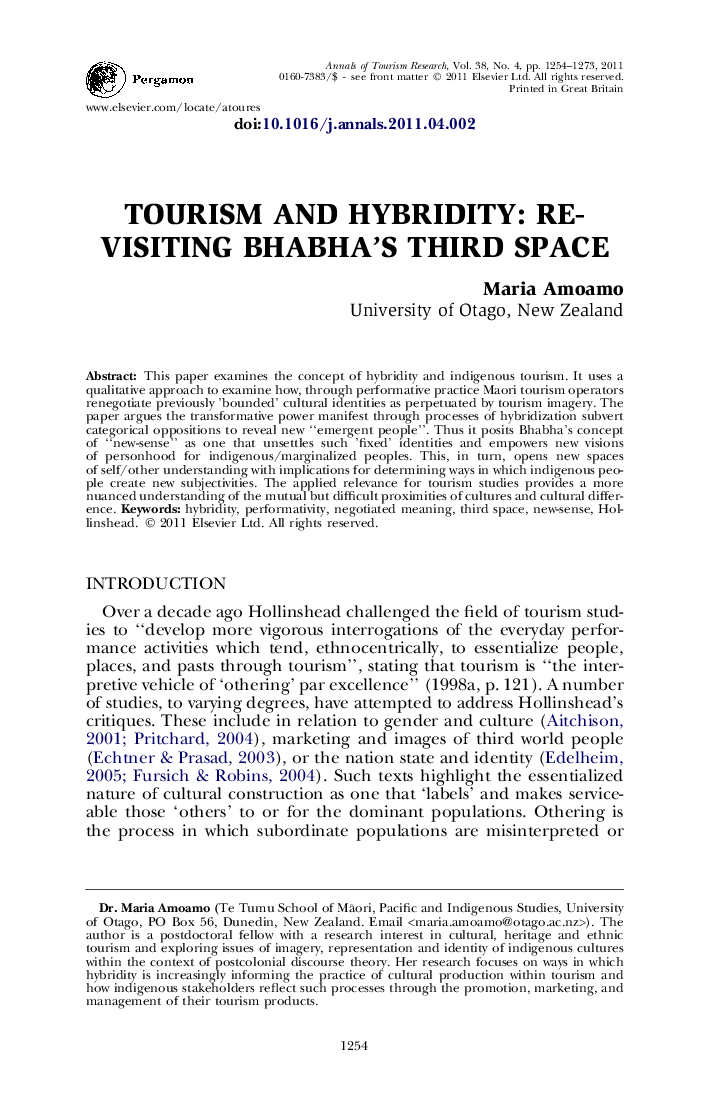| Article ID | Journal | Published Year | Pages | File Type |
|---|---|---|---|---|
| 1007528 | Annals of Tourism Research | 2011 | 20 Pages |
This paper examines the concept of hybridity and indigenous tourism. It uses a qualitative approach to examine how, through performative practice Maori tourism operators renegotiate previously ’bounded’ cultural identities as perpetuated by tourism imagery. The paper argues the transformative power manifest through processes of hybridization subvert categorical oppositions to reveal new “emergent people”. Thus it posits Bhabha’s concept of “new-sense” as one that unsettles such ’fixed’ identities and empowers new visions of personhood for indigenous/marginalized peoples. This, in turn, opens new spaces of self/other understanding with implications for determining ways in which indigenous people create new subjectivities. The applied relevance for tourism studies provides a more nuanced understanding of the mutual but difficult proximities of cultures and cultural difference.
► Hybridization processes are critical indicators of deconstruction. ► “New-sense” reconstitutes self/other relationships. ► Hybridization informs new processes of cultural production. ► Maori disrupt binaries through counter-narratives.
